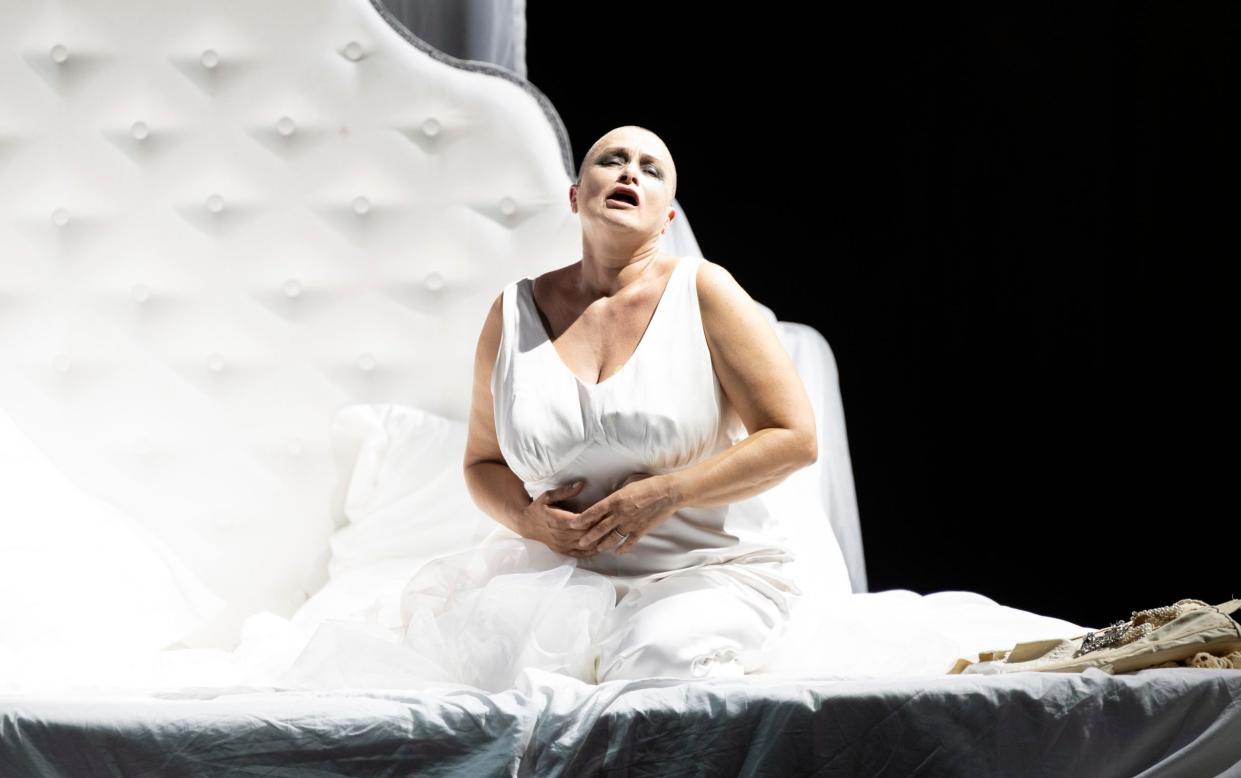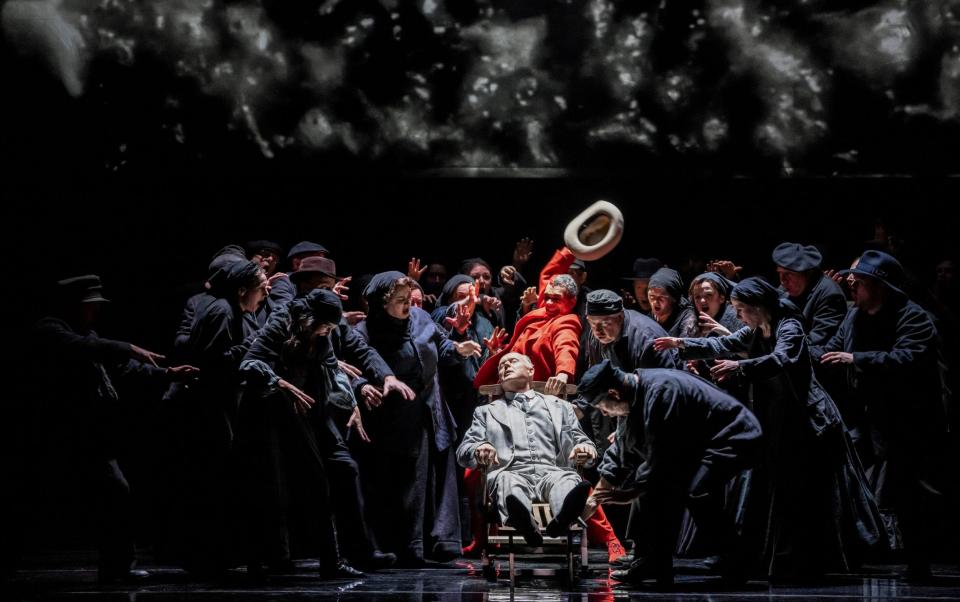Welsh National Opera’s near collapse is the ultimate proof of the arts councils’ hatred of opera

The anti-opera lobby at Arts Council England must be rubbing its hands with glee: the draconian 35 per cent cut they imposed on their funding for Welsh National Opera has been joined by an 11.8 per cent cut in home-based funding from the Welsh Arts Council. The result has been to throw the company into a financial crisis, and they have now announced reducing weeks of touring in the 2024-25 season, removing periods in Llandudno and Bristol, undercutting the stated (but always unconvincing) argument that rebalanced funding was to enable more work out of London. The reach of their work is now reduced, and the future of the company is at stake.
Arguably, WNO did not shout loudly enough when the original Arts Council cut was announced. Unlike English National Opera, which campaigned politically and successfully to mitigate the impact on its work, WNO seemed to accept meekly that it was inevitable. It thought it could struggle through by cancelling touring to Liverpool and making economies. It was in a transitional period of management. It did not want to seem entitled or to make a fuss. But I heard many local grumbles that it was not doing enough to argue its case, and having now appointed an interim general director in the experienced Christopher Barron, it has woken up to the fact that the level of reductions make its present operating model unsustainable.
Hence the belated outcry from musicians, audiences and Welsh cultural figures reaching far beyond opera: the implications of reducing the company have an impact on Wales’s artistic commitment, and this in a country where opera, singing and performance is an essential part of the culture. This is the thin end of a drastic wedge which will soon result in only part-time work for musicians and technical staff, less work to offer audiences, in fewer venues, driving fewer attendances in the future. Hence the glee at the arts councils: their supposedly anti-elitist mission is well on the way to being accomplished. Yet in Wales of all places, opera has never been an elitist art-form, and WNO’s outstanding community and outreach work supports this, working tirelessly to reach new audiences.
It is shocking, but in the present situation hardly surprising, that there was no discussion between the English and Welsh Arts Council on the implications of their grant cuts, and no attempt to involve the company in resolving a new strategy. This is the way the arts councils now seem to work, with a callous disregard for the art forms and the artists they are supposed to represent and support, blaming their financial problems on others. Has anyone seriously assessed the quality of work that WNO produces, which includes two of the finest productions of 20th-century operas in recent times, last season Janacek’s The Makropoulos Affair and this season Britten’s Death in Venice, the latter finishing its sell-out tour in Birmingham this Saturday? These are achievements at the pinnacle of what opera can offer to audiences.
As the recent grotesque Arts Council England report into opera and music-theatre (an absurd attempt to justify its actions retrospectively) vividly demonstrated, the loathing for opera as an art-form runs deep. Its special target is what is called ‘proscenium’ opera – that is, ironically, opera designed to be played in the many theatres we have around the country ready to receive touring shows. Of course there is much potential innovation to be explored in different, unconventional venues –opera at the Roundhouse, for example, or Scottish Opera’s experiment in this summer’s Edinburgh Festival of mounting Stravinsky’s Oedipus Rex as an immersive show in the National Museum of Scotland, with a 100-strong community chorus. But these experimental one-off shows need to grow from the roots of an established company with the ability to flex its resources and develop these models; they are certainly not a panacea for cheap, cut-price opera, and often require (like ENO’s La Boheme in a north London car park) serious investment for a reduced box-office return.

Now the writing is on the wall for WNO, and its need to create a new business model is urgent. The pay cut of 15 per cent proposed for the orchestra from next April may, or more likely may not, be sufficient to balance the books. They are moving inevitably towards being a part-time ensemble – something which may possibly work for the ENO orchestra in the London environment, where there is still freelance work to supplement incomes, but cannot sustain life in Cardiff.
In a recent speech to Opera Europa (in Opera magazine’s June issue just out), former WNO head David Pountney lambasts Arts Council England’s decisions and arguments, and warns WNO against going down the route Scottish Opera has taken, with a contracted orchestra for only 29 weeks a year and a wholly freelance chorus. But he then argues the possibility for positive change: “There are many different ways of telling stories through music and theatre. It may be that something smaller and more original can, in certain circumstances, be realised to a higher standard than a compromised or reduced ‘classical’ opera performance”. For Welsh National Opera, this arguably must be part of thinking its way forward, but only if it is matched by an unequivocal support from governments and their arts councils for the company, its outstanding work, and its contribution to the continuing presence of Wales on a world stage.

